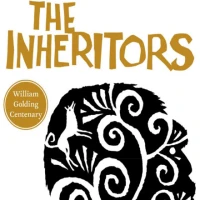A month in the Country, by J.L. Carr
J.L. Carr isn’t I think a well-known author today. To the extent he’s remembered at all it’s for his 1980 Booker shortlisted novella A Month in the Country. William Golding’s Rites of Passage won that year. I haven’t read Rites, but to have beaten Country all I can say is that it must be bloody good.
The narrator of Country is Tom Birkin. In 1978 he’s an old man, but in 1920 he was still young and he spent a summer in the English village of Oxgodby where he uncovered a medieval wall painting located in the local church. The narrative then is an act of memory and nostalgia. Birkin is not unreliable, but this is no longer his direct experience.
Here, walking in driving rain, Birkin first sees the church:
It was an off-the-peg job: evidently there had been no medieval wool boom in these parts. This had been starveling country, every stone an extortion. The short chancel had an unusually shallow pitched roof; it must have been added a good hundred years after the main building (which had a steep pitch flattening into aisles). The tower was squat. Don’t get the wrong impression; all in all, it was pleasant-enoough looking and, when I came closer, I saw that the masonry had been fettled up very nicely – limestone ashlar not rubble. Even between the buttresses it had been beautifully cut with only a hint of mortar and, near-enough drowning as I was, I silently applauded the masons. The stone itself – just a tinge of pale yellow in it, magnesium – it must have been quarried near Tadcaster and ferried up the rivers. Don’t let the detail irritate you: even in those far-off days I thought rather highly of myself as a stone-fancier.
Firstly, that’s a lovely piece of description. Secondly though it’s a description which tells us something of the describer. This is a man comfortable with detail, with the inanimate and with the distant past. Is he as comfortable with the animate and the present? We soon find out as Birkin meets the local vicar, the Reverend Keach:
He was four or five years older than me, maybe thirty, a tall but not a strong-looking man, neatly turned out, pale-eyed, a cold, cooped-up look about him and, long after he must have become used to my face-twitch, he still talked to someone behind my left shoulder.
What I like in that passage is how not only do we get a pretty good description of Keach, again we learn a lot about Birkin too. Most importantly, we learn of his twitch, and so given the period know that he must be a veteran recovering from the horrors of the war.
Birkin knows what he is doing and the work goes well. He lives in the church tower to save money and makes friends with a fellow veteran named Moon who is now an archaeologist. Moon and Birkin understand each other. They were both in the war and they both brought it home with them. As the work continues though Birkin finds himself more and more drawn into Oxgodby life, and not least into the lives of the Reverend Keach and his stunningly beautiful wife – a woman Birkin increasingly feels a connection with.
There’s a lot going on here. The painting itself reveals a mystery. It’s a masterwork. Why then was it covered over so quickly after it was made? Why does it show a man falling into hell whose face is drawn so precisely as to seem a portrait? What happened to the painter? The distant past begins to reveal itself as Birkin’s own past recedes. He is adopted by the village stationmaster and his family who involve him in their church services and Sunday dinners. Twitching and reclusive Birkin is brought back into the world.
At times Country is an extremely funny novel. I loved Birkin being seconded to act as speaker to a small Wesleyan congregation, despite his being painfully ill-suited to the task. There’s a family expedition to buy a new church organ which is another piece of small comic brilliance. Alongside that is that sense of memory and the effects of time – what is lost and what is preserved. The act of uncovering the painting in 1920 is an act of discovery of the past in the same way that the act of remembering that long-past summer is for Birkin in 1978. In both cases the result is not what actually was, but rather as good a reconstruction of it as can now be achieved. As Birkin reflects:
… it simply isn’t possible to return a five-hundred-year-old-wall-painting to its original state. At best, I aimed at approximation, uniformity, something that looked right.
The same could of course be said for the entire narrative.
Part of the power of Country is its tremendous sense of place. Carr makes Oxgodby feel solid and alive, but at the same time it seems faintly idealised (reflecting that within the narrative it is both real and remembered). Carr has a tremendous grasp of telling detail and a knack with description which manages the unusual trick of being sentimental (even nostalgic) without being cloying.
There was a throaty smell blowing off the bilbery shrubs and withering heather when we disembarked on a sheep-cropped plain high up in the hills. There was no shelter from the sun, but it was dinner-time and the women and girls unpacked hard-boiled eggs and soggy tomato sandwiches wrapped in greased paper and swaddled in napkins. It was Mr Dowthwaite (for you laboured for your prestige amongst the Wesleyans) who built a downbreeze fire of twigs and soon had tin kettles boiling. Then he struck up the Doxology and, when we’d sung it, we settled to some steady eating.
Afterwards, most of the men took off their jackets, exposing their braces and the tapes of their long woolen underpants and astonished their children by larking around like great lads. The courting couples sidled off, the women sat around and talked. So eating, drinking, dozing, making love, the day passed until evening came and the horses were led from their pasture. Then, as the first star rose and swallows turned and twisted above the bracken, our wagons tumbled down from above the White Horse and across the Vale towards home: the Sunday-school Treat was over.
I’ve never been a huge fan of the pastoral in painting, and I’ve not read many literary examples of it. That though is a beautiful piece of pastoral writing. It sounds like Heaven made Earthly. It’s a gloriously sun-dappled piece of prose.
Carr captures that sense one has sometimes of a moment as both timeless and yet fleeting. Birkin’s summer, and the book itself, seems to last for an age and yet be over all too soon. As Birkin reflects, “… we must snatch at happiness as it flies.” Birkin’s story is one of hope, but also of loss.
There have been periods in my life, as in most, which seem much longer in memory than in fact they were. That’s natural, because what we remember is influenced so much by the personal – how something mattered to us, how it made us feel. A weekend-break can later stand out more than the otherwise uneventful year it was part of. That’s unavoidable and part of being human, but it does make such times all the more important.
If I’ve not made it clear by now this is an exceptional book. I discovered it through Kevinfromcanada who reviewed it here and Trevor of themookseandthegripes who reviewed it here. I’ve sought not to repeat their comments too much and both are well worth reading. Country is extremely well written, it’s subtle and it’s often slyly funny. It’s a genuine pleasure to read and a book that I’m sure I’ll reread. In truth it’s a joy of a work and in a small way something of a masterpiece.
A final quote. Here Birkin reflects on the character of the man who created the brilliantly executed painting that he is slowly uncovering:
Here I was, face to face with a nameless painter reaching from the dark to show me what he could do, saying to me as clear as any words, ‘if any part of me survives from time’s corruption, let it be this. For this is the sort of man I was.’
I said at the beginning that Carr is little known today. Still, if any part of him survives from time’s corruption, it should be this. For this is the sort of man he was.













Hello, welcome back.
I was looking forward to this review as this is a book Guy and Leroy recommended to me when I read The Return of the Soldier by Rebecca West. I know why now. And I think I’d like this novella a lot just as you’d like The Return of the Soldier a lot too.
Unfortunately, after reading the quotes you picked, I’d need to read it in French and it hasn’t been translated…
Thank you. I have a huge review pile now and tons of unread blog posts, but it was good to be away for a bit.
It’s a great book. I’ll dig out your Return of the Soldier review. I’m starting (restarting) Farrell’s Troubles so it may go well with that.
On the quotes, they contain plenty of words I don’t really understand that well. Some are regional, some specific to Birkin’s field. In a sense you just need to go with it. It’s an easier read than it might seem.
I do think this is a very special book and I don’t hesitate to recommend it to anyone. And, picking up on a discussion from elsewhere, I think you will find that Julian Barnes captures a lot of the same emotions in The Sense of an Ending
Good to see you back, Max. Hope you’ve had a good holiday. You seem to have read a lot: I wonder if you liked them all as much as this one…?
I am planning to read Rites of Passage in the next month or so, so it would be great to discover that it is bloody good. Of course the qualities which appeal to Booker judges are sometimes less appreciated by the general reading public.
This really is a stunning book. The film version just made it to DVD in N America. About bloody time, I say.
I was also looking forward to your review because now I feel free to read and review it as well. I had bought it after seeing the title on your side bar and read about it. I quite like pastoral writing and an author with a sense of place sounds great to me.
You make it sound so rich, it is hard to believe it is so short.
Thanks for your answer. I’ll wait for Caroline’s review and I’ll decide afterwards.
Hi Max, I found you via a comment you left at Tomcat in the Red Room. Just to say, I haven’t read A Month in the Country, but definitely will after your review. I would recommend Golding’s Rites of Passage – I loved the whole trilogy. It really captured the tedium and everyday life as well as the cabin fever on board ship for passengers on the long journey to Australia.
Thanks Sarah. I enjoyed my holiday, but it went a bit astray and I ended up reading a lot more than I expected. We were hiking around Mont Blanc and the weather came in much worse than anticipated. We still had fun though.
Kevin says that this is a very special book and I agree with him. Of the others I was hugely impressed by Moxyland which is a remarkable debut novel but it’s sf and may not interest everyone here. The Train was good, but I’m not sure it was great. I really liked The Pets – Guy’s review was spot on. The Death of King Arthur was very good, but I’ve not read Malory so can’t swear to how faithful it is. Six Records of a Floating Life is an 18th Century Chinese memoir which I’ll be strongly recommending despite it being a bit boring in places. The Imperfectionists is a lot of fun, if sometimes perhaps a little too cruel and I liked The White Tiger a lot more than most but it’s not in Country territory. I wouldn’t be surprised if like Trevor A Month in the Country gets a mention in my end of year roundup come December.
Guy, agreed. Caroline, if you like pastoral have you read von Eichendorff’s Memoirs of a Good-for-Nothing? My review is here: https://pechorinsjournal.wordpress.com/2010/02/09/memoirs-of-a-good-for-nothing-joseph-von-eichendorff/ I look forward to your review of this one.
gaskella, I’m currently looking at Golding’s The Inheritors. Like many people I read Lord of the Flies in school and then nothing further and it’s becoming apparent that was probably an oversight on my part. The Inheritors though really tempts as a place to get back into him. Have you read it? Thanks for the comment on Rites, it beat Burgess’s Earthly Powers. 1980 was clearly a very good year. I’ll try (and fail) to forbear from commenting here on how this year’s Booker lineup compares…
Yes, I have read it. I like Eichendorff and am really looking forward to read this, especially to balance out the heavy August reading I’ve done so far and am still doing (Morante and Sebald).
Pingback: 2011: That was the year that was | Pechorin’s Journal
Pingback: ‘A Month in the Country’ by J. L. Carr – A Summer Idyll | Tony's Book World
Thank you, Max, for pointing me in this direction. A Month is the Country does sound absolutely charming. I can’t think why I haven’t read it yet. I had an image in my mind of a man restoring a painting in a village church…sun-dappled days in the countryside.
On the wishlist it goes (along with the Vivant Denon you recommended to me).
It’s an absolute joy. I’m not sure how well known it is, I mean it’s published as a classic and all but it seems to very much spread by word of mouth which is how it came to me.
Your image is about right, shot through with undercurrents of darkness and sadness, but not so much so as to unbalance the book and despite those elements it’s not remotely depressing.
Pingback: J. L. Carr: A Month in the Country (1980) | Beauty is a Sleeping Cat
Pingback: A Month in the Country by J. L. Carr (1980) | JacquiWine's Journal